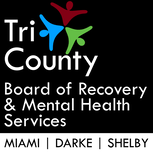In Darke, Miami and Shelby counties, the Tri-County Board of Recovery and Mental Health Services and its partner agencies have joined the Ohio Department of Mental Health and Addiction Services (OhioMHAS) in sharing information so that community residents, parents and young people understand what responsible gambling looks like and what to do when gambling stops being fun and starts to become a problem.
What are some signs of problem gambling?
- Bragging about winning, exaggerating wins and/or minimizing losses.
- Spending a lot of time gambling, thinking about or planning to gamble.
- Restless or irritable when not gambling.
- Borrowing for gambling.
- Hiding time spent gambling or hiding bills and unpaid debts.
- Lying about how much time or money is spent on gambling.
A number of resources are now available for people faced with problem gambling behavior in themselves or a family member. The Ohio Problem Gambling Helpline at 1-800-589-9966 offers referrals for gambling treatment in a specific part of the state, as well as helps with other concerns that can be impacted by gambling, such as housing, food, employment, financial counseling, etc. When needed, state-funded treatment for problem gambling is available through community allocations that go to local county Alcohol, Drug Addiction and Mental Health boards.
If you believe that someone you love has a gambling problem, some simple steps can get a conversation started:
- Talk in a comfortable, private place where you won't be disturbed or distracted.
- Keep it simple and straightforward; focus on your concern for the person and behavior.
- Be specific about how the behavior is affecting others.
- Be clear about expectations.
- Allow the person to respond, and listen without passing judgment.
For more information about problem gambling services in your area, contact the Tri-County Board of Recovery and Mental Health Services at 937-335-7727 or call 1-800-589-9966.
 RSS Feed
RSS Feed
